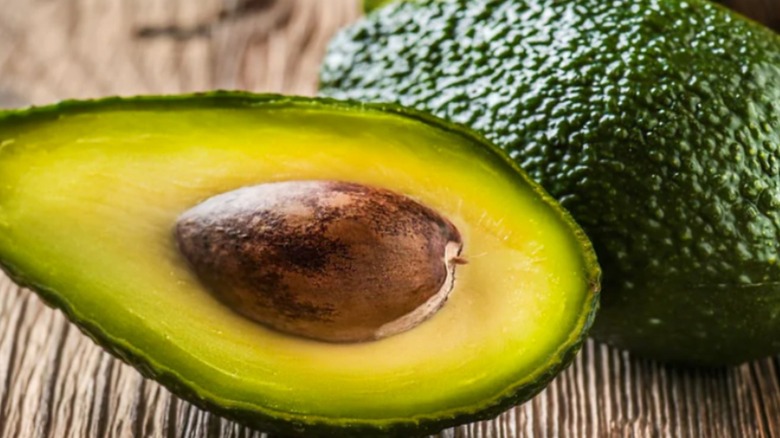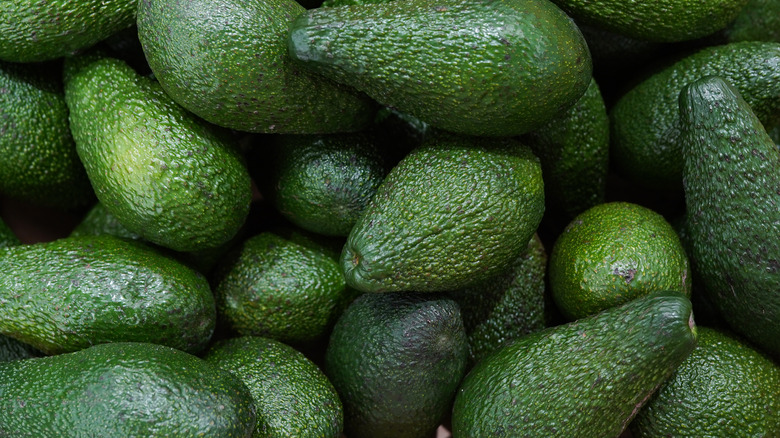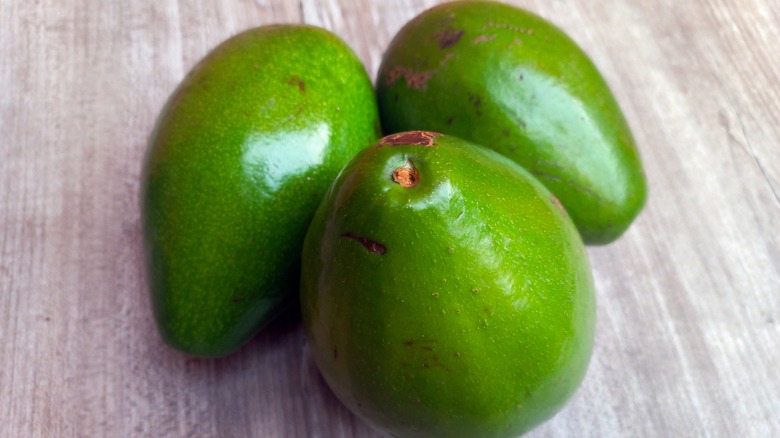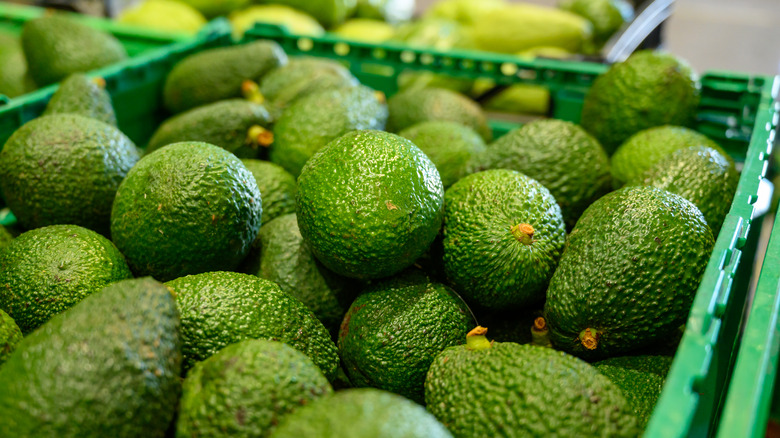What Are Shepard Avocados (& Why Do They Get A Bad Rap)?
If you haven't heard, everyone loves avocados. From 1985 to 2021, annual American avocado consumption increased from 436 million pounds to more than 3 billion pounds, according to Statista. And as Mexico exported $3.2 billion worth of avocados in 2020, according to the USDA, 79% of them went to the United States. Avocados have become so popular over the past few decades that they've resulted in avocado margaritas, avocado ice cream, avocado pudding, and even a warning that millennials are spending too much money on avocado toast to buy a house.
But even these trendy green berries don't get it right all the time. Amidst the avocado craze, one variety has induced a polarizing reaction. If you've never heard of the Shepard avocado, consider yourself blessed — judging by how the Australians react to the defenseless fruit, the only thing this variety is good for is causing tears and meltdowns. Back in February 2019, Australian Avocados introduced the start of Shepard avocado season on the company's Instagram feed. One of the more polite comments said, "Will be sitting the Shepard season out and waiting for Hass to be back. I'd rather go without." Some of the more heated reactions were, "Noooo bring back the hass!!!" and "What a disgrace... green rocks." Can one measly avocado variety really be that bad? Let's find out.
What are Shepard avocados?
As detested as they seem to be, it's unsurprising to learn that Shepard avocados don't exactly dominate the Australian avocado industry. However, they are one of the two main types grown on the continent and take up 16% of the Australian market, according to Avocados Australia, while Hass avocados constitute 81% of the share. Yet while Australians seem to have stronger opinions about them than anyone else, these fruits are actually originally from California. But since Shepards are now only grown in Australia, it makes sense they would have some things to say about their local fruits.
In fact, from February to April in Australia, Shepards are the only type available. You'll know one when you see one — instead of possessing a Hass avocado's signature green flesh, Shepards are yellow on the inside, although their skin remains a bright, shiny green no matter how ripe they are. They're known to be firmer than their Hass brethren, and they don't turn brown quite as quickly. The flip side to the Shepards' firmness is that they're not quite as easy to mash, which is devastating for avocado toast and guacamole lovers. But this does mean that they hold their own better in salads, sandwiches, and during cooking.
Why do Shepard avocados have a bad reputation?
The Shepards' bad reputation doesn't come out of nowhere, in fact, the avocados possess a few key characteristics that makes Australians highly critical of them. For one, it's much more difficult to tell if they're ripe than with Hass avocados. While we're used to seeing an avocado's skin go from glossy green to wrinkly and nearly black, a Shepard's remains bright green no matter what. In order to tell when it's ready to eat, you have to press your finger on the top of the fruit. If it sinks into the soft meat, you'll know you're good to go. Pedestrian also had a bone to pick over the thinner skin of Shepard avocados, noting that when you scrape out the flesh with a fork or spoon, you usually cut right through the skin.
And if that's not bad enough, there is little reward for enduring all the trials it takes to get to the avocado meat (for some, anyway). Since Shepards have much firmer meat than Hass, they're that much trickier to incorporate into our favorite mashed avocado dishes. Even if you've accepted that fact, some people still don't like their color or texture. Pedestrian's reporter described the fruits as "some kind of bright yellow baby food." Not exactly appetizing.
Where can you find Shepard avocados?
As previously mentioned, Shepard avocados are mostly produced in Australia, so that is primarily where you'll find them. As mentioned above, when these fruits are in season, they're the only avocados you'll see on grocery store shelves down under. They do make select appearances outside of Australia, though. In March 2023, for example, the Queensland Shepard Avocados Workshop and Networking Function showcased the fruits in Hong Kong in an effort to promote them. Will Shepards be brave enough to show their face again in other countries after the event? Only time will tell.
If you're determined to get your hands on these avocados in the U.S., you may have to grow them yourself. Shepard avocado trees are available online at websites like Fruit Tree Cottage and Daleys Fruit Tree Nursery, although even the Food and Agriculture Organization of the United Nations (FAO) has some critical things to say about them. The FAO states that the avocado's biggest disadvantage comes from the large size of its seed, but also acknowledges its "smooth, buttery texture." If you want to take on the project of planting one of these trees in your backyard, you may be rewarded with a unique avocado that can actually hold its own in sandwiches and salads.



